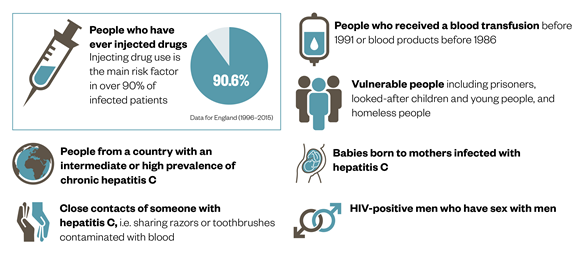Hepatitis C Treatment in Belgium
Search and Compare the Best Clinics and Doctors at the Lowest Prices for Hepatitis C Treatment in Belgium

Find the best clinics for Hepatitis C Treatment in Belgium
No clinics available
Turkey offers the best prices Worldwide
Price: $ 22,731

- Home
- Belgium
WHY US?
At Medijump, we're making medical easy. You can search, compare, discuss, and book your medical all in one place. We open the door to the best medical providers worldwide, saving you time and energy along the way, and it's all for FREE, no hidden fees, and no price markups guaranteed. So what are you waiting for?

Free

Best Price

Widest Selection

Risk-Free
What you need to know about Hepatitis C Treatment in Belgium

Hepatitis C is a viral infection that can cause liver inflammation and lead to serious liver damage. If you have hepatitis C, your doctor will examine your specific condition and make a treatment plan based on the type of the hepatitis C (genotypes), your general condition, and how much liver scarring (cirrhosis) you have.
What does a Hepatitis C Treatment Procedure Involve?
The main treatment options for hepatitis C are antiviral medication and liver transplantation. Antiviral medication is used to clear the virus from your body in at least 8 to 12 weeks. If you have developed a more serious complication, then liver transplantation can be an option. During liver transplantation, you are given a general anesthetic, and then your doctor removes the damaged liver and replaces it with a healthy liver, either from a deceased donor or a living donor.
How Long Should I Stay in Belgium for a Hepatitis C Treatment Procedure?
If your doctor gives you antiviral medication, you may need to stay in Belgium for a few weeks as your doctor needs to monitor how your body is responding to the medication. If you undergo surgery, you are required to spend 5 to 10 days in the hospital and stay in the country for 10 to 14 more days after you are discharged from the hospital.
What's the Recovery Time for Hepatitis C Treatment Procedures in Belgium?
The recovery time depends on which treatment you underwent. With antiviral medication, you should be able to get back to most of your normal routine within a couple of days or as soon as you do not experience any symptoms or side effects from the medication. With a liver transplant, the full recovery period can take around six months, but you should be able to return to work within 12 weeks.
What sort of Aftercare is Required for Hepatitis C Treatment Procedures in Belgium?
Making healthy lifestyle changes is very important after your treatment, such as following a healthy and balanced diet plan and regular exercise. Treatment with antiviral medication requires regular follow-up checkups to monitor your condition and progress. With liver transplantation, you also need regular checkup and you may need to take medication for a longer period of time.
What's the Success Rate of Hepatitis C Treatment Procedures in Belgium?
Antiviral medicine is a safe and effective treatment for hepatitis C, with around 90% of patients with the condition are cured. Liver transplant is generally safe and approximately 70% of patients who undergo the procedure can live for ten years or longer. Both have some side effects and risks, such as depression, anxiety, skin irritation, insomnia, anorexia, tiredness, hair loss, aggressive behavior, bile duct complications, blood clots, bleeding, failure or rejection of donated liver, infection, mental confusion, and seizures
Are there Alternatives to Hepatitis C Treatment Procedures in Belgium?
You will need antiviral medication to treat hepatitis C, but if the infection is diagnosed in the early stages, you may not need treatment immediately. However, you still need to make lifestyle adjustments. Your doctor will have several blood tests to see if your body fights off the virus, if the infection does not continue, you usually do not need treatment.
What Should You Expect Before and After the Procedure
When you have hepatitis C, the virus can damage your liver and you may experience symptoms, such as fatigue, bruising easily, bleeding easily, jaundice, weight loss, dark-colored urine, and more. After treatment, you may be cured and will not experience any of these symptoms anymore.
Whilst the information presented here has been accurately sourced and verified by a medical professional for its accuracy, it is still advised to consult with your doctor before pursuing a medical treatment at one of the listed medical providers
No Time?
Tell us what you're looking for and we'll reachout to the top clinics all at once
Enquire Now

Popular Procedures in Belgium
Prices Start From $50

Prices Start From $35,013

Prices Start From $39

Recommended Medical Centers in Belgium for procedures similar to Hepatitis C Treatment

- Interpreter services
- Translation service
- Religious facilities
- Medical records transfer
- Medical travel insurance
- Health insurance coordination
- TV in the room
- Safe in the room
- Phone in the room
- Private rooms for patients available

- Interpreter services
- Translation service
- Religious facilities
- Medical records transfer
- Medical travel insurance
- Health insurance coordination
- TV in the room
- Safe in the room
- Phone in the room
- Private rooms for patients available

- Interpreter services
- Translation service
- Religious facilities
- Medical records transfer
- Medical travel insurance
- Health insurance coordination
- TV in the room
- Safe in the room
- Phone in the room
- Private rooms for patients available

- Interpreter services
- Translation service
- Religious facilities
- Medical records transfer
- Medical travel insurance
- Health insurance coordination
- TV in the room
- Safe in the room
- Phone in the room
- Private rooms for patients available

- Interpreter services
- Translation service
- Religious facilities
- Medical records transfer
- Medical travel insurance
- Health insurance coordination
- TV in the room
- Safe in the room
- Phone in the room
- Private rooms for patients available
Hepatitis C Treatment in and around Belgium
Belgium is one of the smallest and most densely populated countries in Europe and has some of Europe’s finest cuisine, including the creamiest chocolates and a wide variation of beers. In addition, it is home to extensive beaches, postcard-worthy dunes, historic cities, and beautiful countryside, with belfries, castles, and carnivals. Belgium has enjoyed a growing reputation for being excellent medical tourism as well as the country boasts immaculate clinical standards. The medical centers in the country offer a wide range of specializes treatments, short waiting time, highly-trained medical professionals, and considerably lower medical costs. Orthopedics and heart surgery are the most sought after procedures in Belgium.
Popular Parts of Belgium
Brussels is the capital of Belgium, as well as home to European Union official seats and NATO headquarters. Here, visitors can see Europe’s grandest squares, visit the beloved statue of a little boy peeing into a basin (Manneken Pis), explore Musées Royaux des Beaux-Arts, and admire the magnificent Grand Palace. Bruges, a pickled Gothic city, is also worth a visit. The key attractions in the city are the 14th-century town hall, the Cathedral of the Holy Savior, and the Belfry Tower. Other popular cities include Antwerp and Ghent. While Antwerp is famous for its fashion and excellent museums, Ghent is best known for its historic quarter and stunning Van Eyck altarpiece in its colossal cathedral.
Weather and Climate in Belgium
Belgium has four distinct seasons. Summer in the country is relatively short, starting in July and ending in August. The season is warm, with bearable heat and some intermittent rain. Winter comes in November and extends until March. It can get rather wet and chilly during this season, with an average temperature of around 3 - 7°C. Spring (April – June) and autumn (September – October) are generally nice and warm, with an average temperature of around 10 - 15°C.
Getting around in Belgium
The main international airport in Belgium is Brussels Airport. It serves flights to many major cities around the world, including Copenhagen, Doha, London, New York, Atlanta, Casablanca, and Bangkok. Since Belgium is a small country, there are no domestic flights. The public transport system in the country is extremely well-organized and reasonably priced. The best way to get around the country is by train. The trains are affordable, fast, frequent, very punctual, and have a comprehensive network of lines. Buses tend to be used in conjunction with train services, so you will likely need a train-bus combination when traveling, especially to rural areas. Inside cities, the transport systems are centered on buses, but there are also metro and trams in Brussels and Antwerp. Taxis are plentiful in all cities and ensure to hire metered official taxis, which have standard fares.
Tourist Visas in Belgium
Belgium is part of the Schengen Area, so nationals of EU/EEA countries do not need a visa to visit the country regardless of their length of stay or purpose of travels. Citizens of 62 countries, including Canadian, Australian, and US nationals, can stay in the country without a visa for up to 90 days. Belgium Visa for Medical reasons is available for people who need to obtain medical care in the country.
Additional Information
- Local Currency: Belgium adopted the euro (€) in 2002. The exchange rate from US$1 is around €0.85 (€1 is around US$1.17).
- Money & Payments: All towns and cities have cashpoints that are compatible with international banking networks. Credit Cards, particularly MasterCard and Visa, are widely accepted in major cities and towns. Always have some cash on you when traveling to smaller villages. Tipping is not standard practice but appreciated.
- Local Language: Dutch, German, and French are the official languages in Belgium. English is widely spoken.
- Local Culture and Religion: About 65% of the population is Christian, with a large portion adhere to Roman Catholicism. There are also some small communities of Jewish, Muslim, and Buddhist.
- Public holidays: Some important public holidays in Belgium include New Year’s Day, Easter Monday, Ascension Day, Whit Monday, Independence Day, and Christmas Day.
Popular Searches
- Plastic Surgery in Thailand
- Dental Implants in Thailand
- Hair Transplant in Thailand
- Breast Augmentation Thailand
- Gastric Sleeve in Thailand
- Gender Reassignment Surgery in Thailand
- Laser Hair Removal in Bangkok
- Botox in Bangkok
- Dermatology in Bangkok
- Breast Augmentation in Bangkok
- Coolsculpting in Bangkok
- Veneers in Turkey
- Hair Transplant in Turkey
- Rhinoplasty in Turkey
- Stem Cell Therapy in Mexico
- Rhinoplasty in Mexico
- Liposuction in Mexico
- Coolsculpting in Tijuana
- Rhinoplasty in Korea
- Scar Removal in Korea
- Gastric Sleeve in Turkey
- Bone Marrow Transplant in India
- Invisalign in Malaysia
- Plastic Surgery in the Dominican Republic
- Tummy Tuck in the Dominican Republic
- Plastic and Cosmetic Surgery in Poland
- Rhinoplasty in Poland
- Hair Implant in Poland
- Dental Implants in Poland
- IVF in Turkey